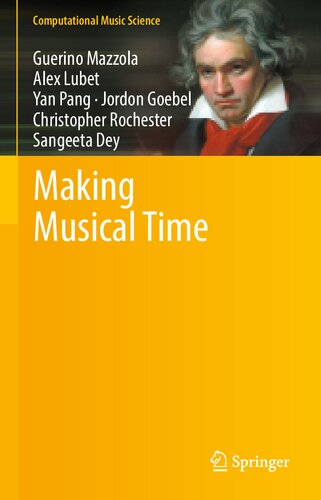

Most ebook files are in PDF format, so you can easily read them using various software such as Foxit Reader or directly on the Google Chrome browser.
Some ebook files are released by publishers in other formats such as .awz, .mobi, .epub, .fb2, etc. You may need to install specific software to read these formats on mobile/PC, such as Calibre.
Please read the tutorial at this link: https://ebookbell.com/faq
We offer FREE conversion to the popular formats you request; however, this may take some time. Therefore, right after payment, please email us, and we will try to provide the service as quickly as possible.
For some exceptional file formats or broken links (if any), please refrain from opening any disputes. Instead, email us first, and we will try to assist within a maximum of 6 hours.
EbookBell Team

5.0
110 reviewsThis book is a comprehensive examination of the conception, perception, performance, and composition of time in music across time and culture. It surveys the literature of time in mathematics, philosophy, psychology, music theory, and somatic studies (medicine and disability studies) and looks ahead through original research in performance, composition, psychology, and education. It is the first monograph solely devoted to the theory of construction of musical time since Kramer in 1988, with new insights, mathematical precision, and an expansive global and historical context.
The mathematical methods applied for the construction of musical time are totally new. They relate to category theory (projective limits) and the mathematical theory of gestures. These methods and results extend the music theory of time but also apply to the applied performative understanding of making music. In addition, it is the very first approach to a constructive theory of time, deduced from the recent theory of musical gestures and their categories.
Making Musical Time is intended for a wide audience of scholars with interest in music. These include mathematicians, music theorists, (ethno)musicologists, music psychologists / educators / therapists, music performers, philosophers of music, audiologists, and acousticians.